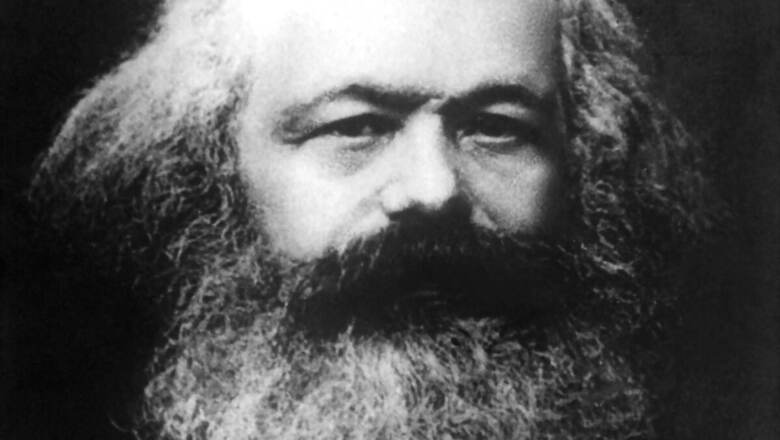
views
Today marks the 203rd birth anniversary German polymath Karl Marx, who promoted the ideology of communism and tried to push for a proletarian revolution that would bring in a more egalitarian society.
Marx was born on May 5, 1818 in Trier, Rhine province of Germany that was under the rule of Prussia at the time. Today he is remembered as the revolutionary thinker who published Manifest der Kommunistischen Partei commonly known as The Communist Manifesto along with Friedrich Engels. He also published another profound work of research that was dedicated to the socialistic movement, Das Kapital.
To commemorate his 203rd birth anniversary let us take look at some of the lesser known facts about him:
1. Marx was born into a family of orthodox jews and was the grandchild of rabbis both from his maternal and paternal side. However, at the time under Prussian rule, the political environment began to have second thoughts about Jewish emancipation and Marx’s father converted to Christianity a year before Karl was born. Karl was baptized when he was six years old, but as he grew up, religion did not play a major role in shaping his ideology.
2. Marx’s notorious side was at its height when he was a student of humanities at University of Bonn. A student of Greek and Roman mythology and the history of art, Marx actively participated in customary student activities, fought a duel, and even spent a day in jail for being drunk and disorderly.
3. His socialistic side was already taking form when he was at the University. Marx presided at the Tavern Club, which was at odds with the more aristocratic student associations, and joined a poets’ club that included some political activists. At the time, the culture of politically rebellious students was part of life at Bonn.
4. Marx also advocated for freedom of press and was critical of censorship at a time when the political rule was quite hostile. Ironically, the newspaper Marx worked for, Rheinische Zeitung, was the liberal democratic branch of a group of young merchants, bankers, and industrialists. The newspaper was based in Cologne, which was the centre of the most industrially advanced section of Prussia.
5. In 1849 Marx’s newly founded newspaper Neue Rheinische Zeitung urged a constitutional democracy and war with Russia. Marx even called for arms and men to help the resistance when the king of Prussia dissolved the Prussian Assembly in Berlin. For this and several other charges, Marx was banished from his home country and spent later years of his life in London.
Read all the Latest Lifestyle News here
















Comments
0 comment